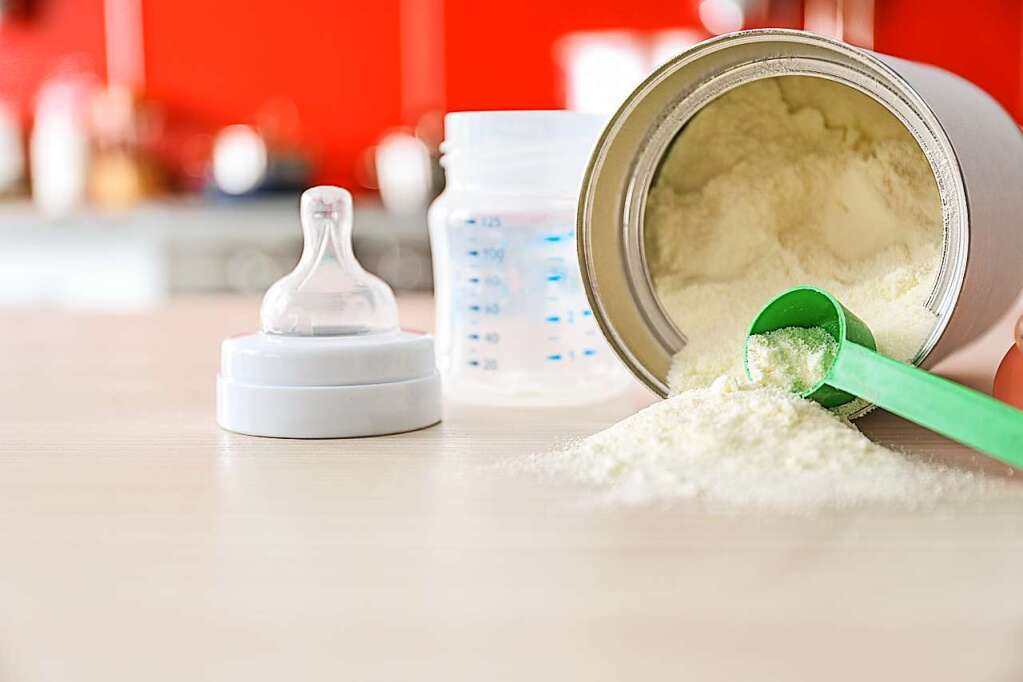breastfeeding or bottle? Health experts say the baby milk industry is using marketing tricks to try to influence mothers. They demand a crackdown.
Health experts are convinced that baby milk powder companies are using controversial marketing tricks to discourage mothers from breastfeeding. That must be stopped, they demand in the journal The Lancet.
According to the authors, manufacturers gave the impression that babies who do not sleep through the night or suffer from colic are better supplied with artificial baby food (formula milk) than with breast milk. Such problems can often be solved with the support of specialist staff.
The World Health Organization (WHO) recommends exclusive breastfeeding for six months. After that, other foods should be given, but continued breastfeeding at least until the second birthday. The Professional Association of Pediatricians recommends breastfeeding exclusively for four to six months. However, their spokesman Jakob Maske also emphasizes that breastfeeding does not work for everyone. Even the free decision not to breastfeed is not condemned.
“The whole miracle of breast milk cannot be imitated,” says Mathilde Kersting, head of the research department for child nutrition at the University of Bochum. While formula milk is safe to feed babies, it fails to replicate the bioactive compounds found in breast milk that help shape the immune system.
WHO criticizes manufacturers’ influence
The WHO denounces the marketing practices of manufacturers and cites global sales of around 55 billion dollars a year. Employees also take part in groups for mothers on social media. They stirred up fears, touted breast milk substitutes and offered free samples without saying they were being paid for it.
The Swiss company Nestl rejects such machinations. With a world market share of around 16 percent, it is the largest producer of baby milk powder. “We support the WHO recommendation that babies should be exclusively breastfed for the first six months of their lives,” the company said.
The health experts write that the 1981 WHO code on the marketing of breast milk substitutes does not work. Thereafter, such products shall not be publicly advertised and free samples shall not be distributed. Under pressure from industry lobbyists, nearly 100 countries failed to implement the code.
According to The Lancet, women should be given more support when it comes to breastfeeding, for example through sufficient maternity leave. In addition, more staff must be trained to support women with breastfeeding problems. The magazine emphasizes that some women cannot breastfeed and depend on formula milk. In addition, every woman can freely decide how to feed her baby. However, it must be ensured that the mothers receive correct and independent information, “free from the influence of the industry”.


